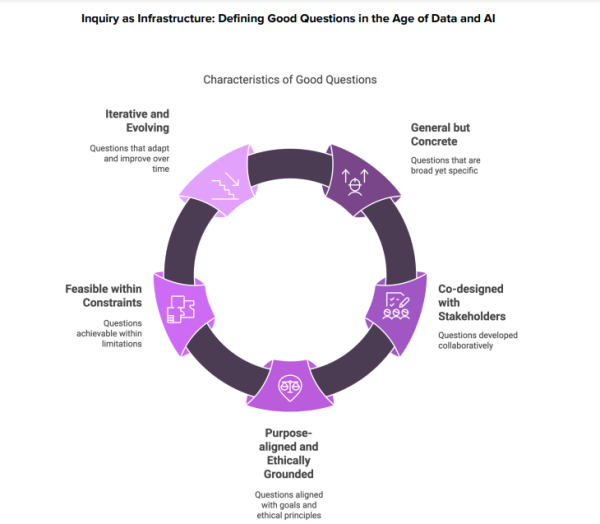Paper by Stefaan Verhulst: “The most consequential failures in data-driven policymaking and AI deployment often stem not from poor models or inadequate datasets but from poorly framed questions. This paper centers question literacy as a critical yet underdeveloped competency in the data and policy landscape. Arguing for a “new science of questions,” it explores what constitutes a good question-one that is not only technically feasible but also ethically grounded, socially legitimate, and aligned with real-world needs. Drawing on insights from The GovLab’s 100 Questions Initiative, the paper develops a taxonomy of question types-descriptive, diagnostic, predictive, and prescriptive-and identifies five essential criteria for question quality: questions must be general yet concrete, co-designed with affected communities and domain experts, purpose-driven and ethically sound, grounded in data and technical realities, and capable of evolving through iterative refinement. The paper also outlines common pathologies of bad questions, such as vague formulation, biased framing, and solution-first thinking. Rather than treating questions as incidental to analysis, it argues for institutionalizing deliberate question design through tools like Q-Labs, question maturity models, and new professional roles for data stewards. Ultimately, the paper contends that the questions are infrastructures of meaning. What we ask shapes not only what data we collect or what models we build but also what values we uphold and what futures we make possible…(More)”.
